******************************************************************************************************************************
E. B. Thompson
One of the greatest breeders of Barred Rocks in history is Edward B. Thompson (1862 - 1928) of Amenia, New York. He made his first purchase of Barred Rocks in 1879, while still but a schoolboy, purchasing from Virgil Gilman. He won at Madison Square Garden Shows for 26 years straight. Can you imagine?!
from: Reliable Poultry Journal page 590 - 592 :
E. B. Thompson Amenia, New York breeding Barred Rocks since 1879. First Exhibited at New York in 1884. In 1887 made his great record, winning nearly everything, including first breeding pen, first cockerel, and first pullet. He did not exhibit cocks or hens. The Madison Square Garden Show of February, 1896 marked his eleventh consecutive year as a successful exhibitor winning: Grand Gold special for best cockerel, best pullet and exhibition yards; sweepstakes in gold for best Plymouth Rock on exhibition of either sex and any variety; also other minor prizes.
The young stock produced each year has unlimited range. Mr. Thompson believes firmly in free range. He uses hens exclusively (no incubators) for hatching and brooding. Dozens of houses (brood coops) are located quite a distance apart, over 15 or 20 acres of ground (pasture and meadow land) and the chicks run at will all summer long and late into fall.
These brood coops are ordinary dry-goods boxes. Some of the largest are 3 1/2 x 4 x 4 feet. Others smaller (used for hens with chicks). Larger ones substituted after chicks were weaned.
The results of each mating are studied and the birds that are themselves good and show the ability to reproduce themselves in greatest numbers are valued highest. Mr. Thompson believes firmly in letting his young chicks look out for themselves. After the chicks are weaned they still have a rain-tight coop to go to, but are at large and must go to the shelter of their own accord. They are not nurtured and pampered. It is a case of survival of the fittest, with slight help. Only the more vigorous and hardy ones are desirable. either to breed from or to sell. Rigorous nature is permitted, to a certain extent, to weed out the unfit, the weakly ones.
Every fall, while the old stock is enjoying unlimited range in the orchard, Mr. Thompson spades up all yards and reseeds them with grass and rye seed.
From: Poultry Success March, 1914:










To be continued.............
*************************************************************************************************************************************************
*************************************************************************************************************************************************
E. B. Thompson
One of the greatest breeders of Barred Rocks in history is Edward B. Thompson (1862 - 1928) of Amenia, New York. He made his first purchase of Barred Rocks in 1879, while still but a schoolboy, purchasing from Virgil Gilman. He won at Madison Square Garden Shows for 26 years straight. Can you imagine?!
from: Reliable Poultry Journal page 590 - 592 :
E. B. Thompson Amenia, New York breeding Barred Rocks since 1879. First Exhibited at New York in 1884. In 1887 made his great record, winning nearly everything, including first breeding pen, first cockerel, and first pullet. He did not exhibit cocks or hens. The Madison Square Garden Show of February, 1896 marked his eleventh consecutive year as a successful exhibitor winning: Grand Gold special for best cockerel, best pullet and exhibition yards; sweepstakes in gold for best Plymouth Rock on exhibition of either sex and any variety; also other minor prizes.
The young stock produced each year has unlimited range. Mr. Thompson believes firmly in free range. He uses hens exclusively (no incubators) for hatching and brooding. Dozens of houses (brood coops) are located quite a distance apart, over 15 or 20 acres of ground (pasture and meadow land) and the chicks run at will all summer long and late into fall.
These brood coops are ordinary dry-goods boxes. Some of the largest are 3 1/2 x 4 x 4 feet. Others smaller (used for hens with chicks). Larger ones substituted after chicks were weaned.
The results of each mating are studied and the birds that are themselves good and show the ability to reproduce themselves in greatest numbers are valued highest. Mr. Thompson believes firmly in letting his young chicks look out for themselves. After the chicks are weaned they still have a rain-tight coop to go to, but are at large and must go to the shelter of their own accord. They are not nurtured and pampered. It is a case of survival of the fittest, with slight help. Only the more vigorous and hardy ones are desirable. either to breed from or to sell. Rigorous nature is permitted, to a certain extent, to weed out the unfit, the weakly ones.
Every fall, while the old stock is enjoying unlimited range in the orchard, Mr. Thompson spades up all yards and reseeds them with grass and rye seed.
From: Poultry Success March, 1914:
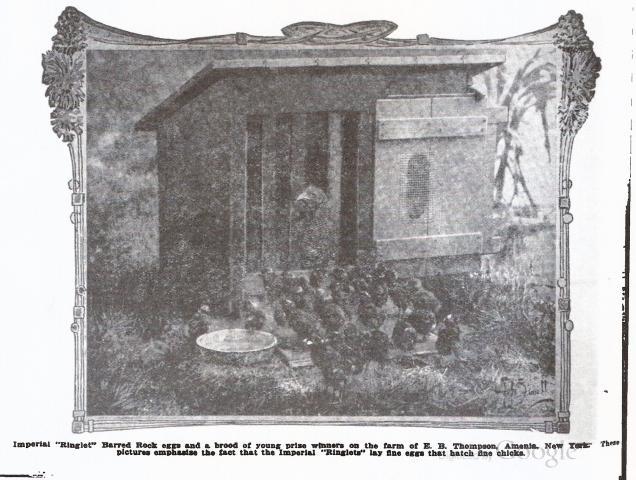
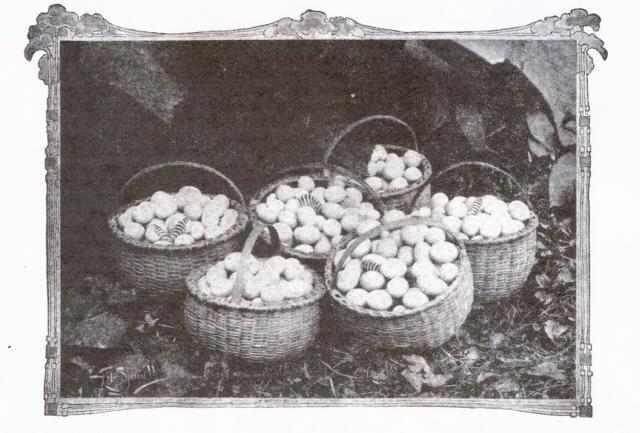
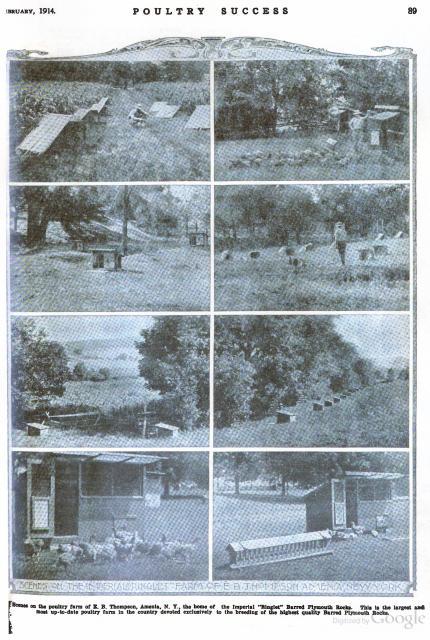
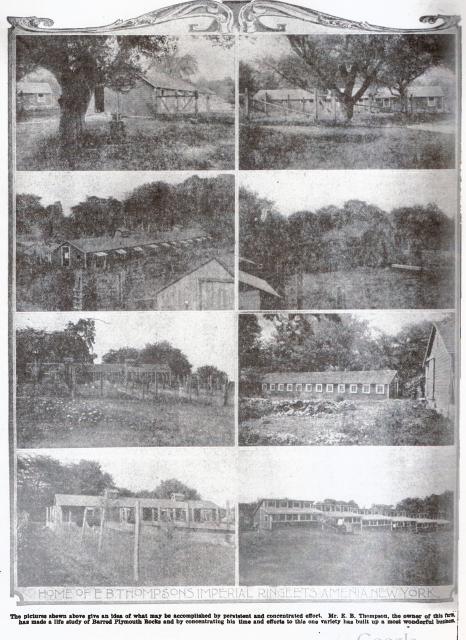
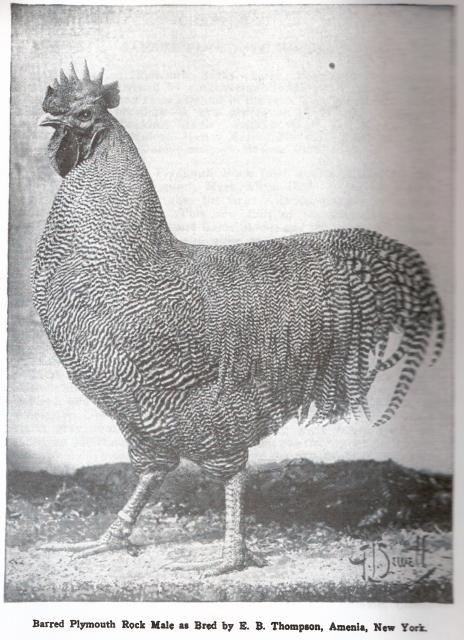
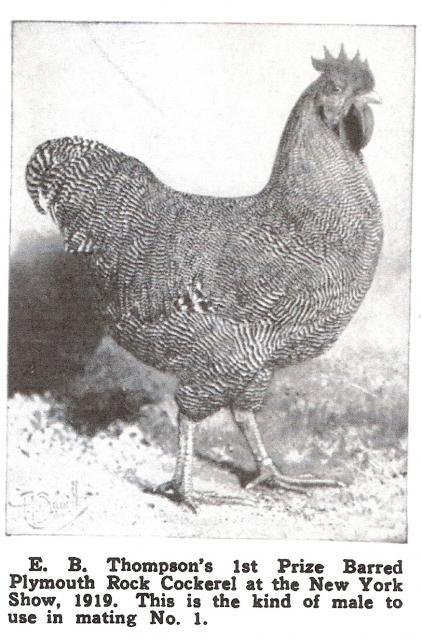
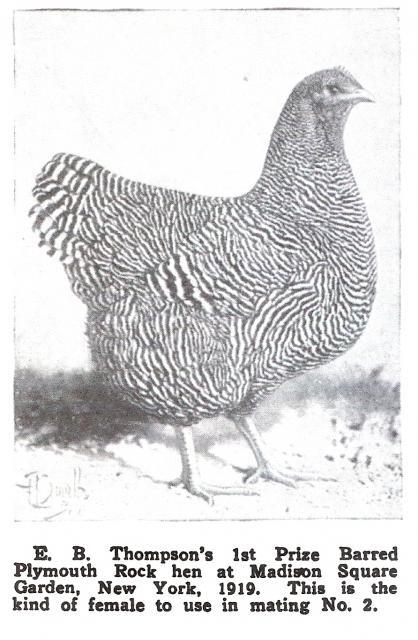
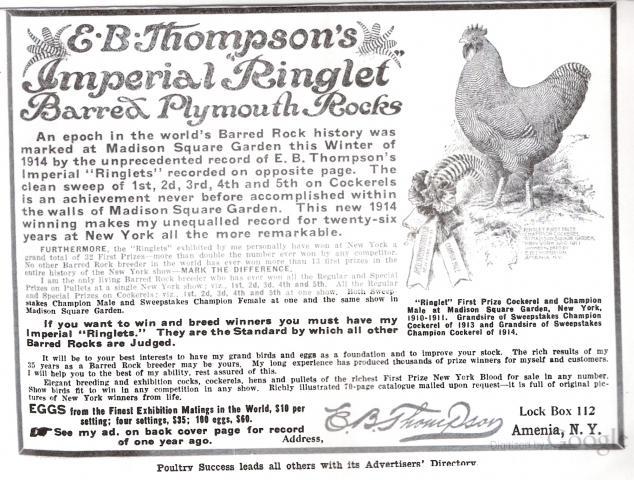
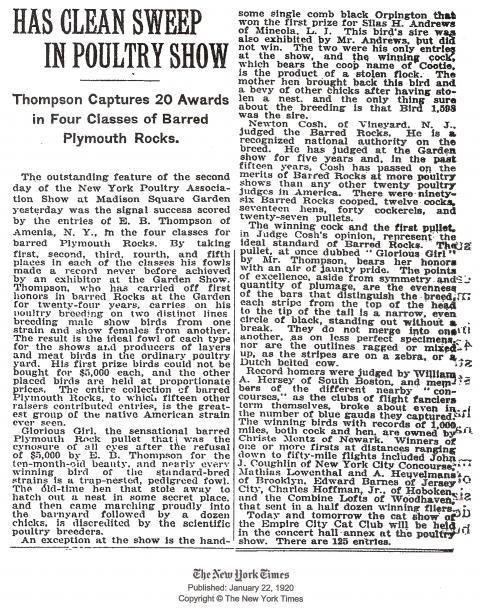
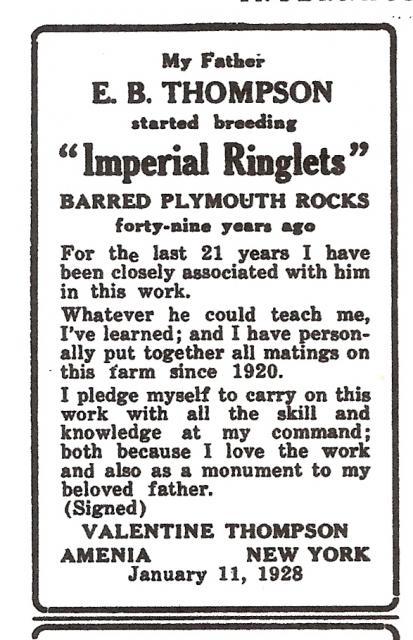
To be continued.............
*************************************************************************************************************************************************
*************************************************************************************************************************************************
